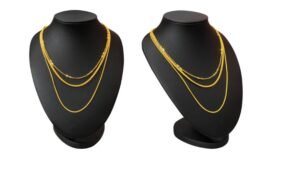In Singapore, the trade of gold jewellery thrives within the backdrop of a robust economy and a cultural affinity for luxury goods. Renowned for its quality and authenticity, Singaporean gold jewellery attracts a diverse global clientele, making it a lucrative business venture. The key to a successful transaction lies in choosing the right buyer, a decision that significantly influences the speed of the sale, the realized profits, potential after-sale issues, and overall satisfaction.
History of Gold Trading in Singapore
The origins of gold trading in Singapore can be traced back to 1969 when BullionStar, the first gold dealer, was established. Over the years, Singapore has evolved into an international hub for gold trading, enticing a multitude of global investors with its well-regulated and transparent market. If you’re wondering where can I sell my gold jewellery in Singapore, it’s essential to navigate these current trends wisely. However, the current trends in the gold market are marked by unpredictability due to global uncertainties, including inflation, geopolitical tensions, and pandemic recovery, impacting the demand, supply, and price stability of gold.
Factors to Consider While Selling Gold Jewellery:
Condition of the Gold Jewellery
Impeccable condition is a hallmark of Singaporean gold jewellery. Each piece radiates brilliance, showcasing expert craftsmanship with no visible scratches or dents. This condition adds to the allure of high-quality, luxurious appeal.
Market Prices
Market prices are dynamically determined by the interplay of supply and demand forces. Fluctuations occur based on changes in production, market conditions, or consumer preferences, serving as an indicator of the value of gold jewellery.
Authenticity and Certification
Ensuring the authenticity of gold jewellery is paramount. Certification from reputable authorities adds credibility, assuring buyers of the quality and purity of the gold, which, in turn, enhances the perceived value of the jewellery.
Current Gold Market Trends
Staying abreast of current gold market trends is essential. Factors like geopolitical events, economic indicators, and shifts in consumer preferences can impact the demand for gold, influencing the pricing dynamics.

Tips on Negotiating the Best Price for Gold Jewellery
Understanding Market Trends
Staying competitive in the gold market involves a keen understanding of market trends. This includes analyzing historical data to predict future market behaviour and aiding businesses in strategizing, resource allocation, and profit maximization.
Knowing the Worth of Your Gold
An essential aspect of negotiating the best price is understanding the value of your gold. This knowledge safeguards against undervalued sales, fraudulent transactions, and misrepresentation of the precious asset.
Effective Bargaining Techniques
Successful negotiation entails preparation, market value awareness, patience, and maintaining a firm yet flexible stance. Active listening and clear communication contribute to a favourable outcome during negotiations.
Conclusion
Choosing trustworthy platforms for selling gold jewellery is crucial. Options include pawn shops, local jewellers, online marketplaces, and specialized gold-buying companies, each offering competitive rates, security, and convenience for sellers.
In Singapore, selling gold proves to be a profitable venture owing to the market’s stability and robust demand. However, a successful transaction necessitates knowledge, patience, and a keen observation of market trends.
Starting a gold jewellery business holds the promise of bountiful rewards, requiring persistent effort, creativity, and adaptability. Challenges should be viewed as stepping stones to success, with the understanding that every great entrepreneur starts small. Stay encouraged and persevere in the pursuit of your entrepreneurial dreams. With the right approach and understanding, the trade of gold jewellery in Singapore can be both financially rewarding and personally fulfilling.
Read More: What fashion trends will be in 2024?







